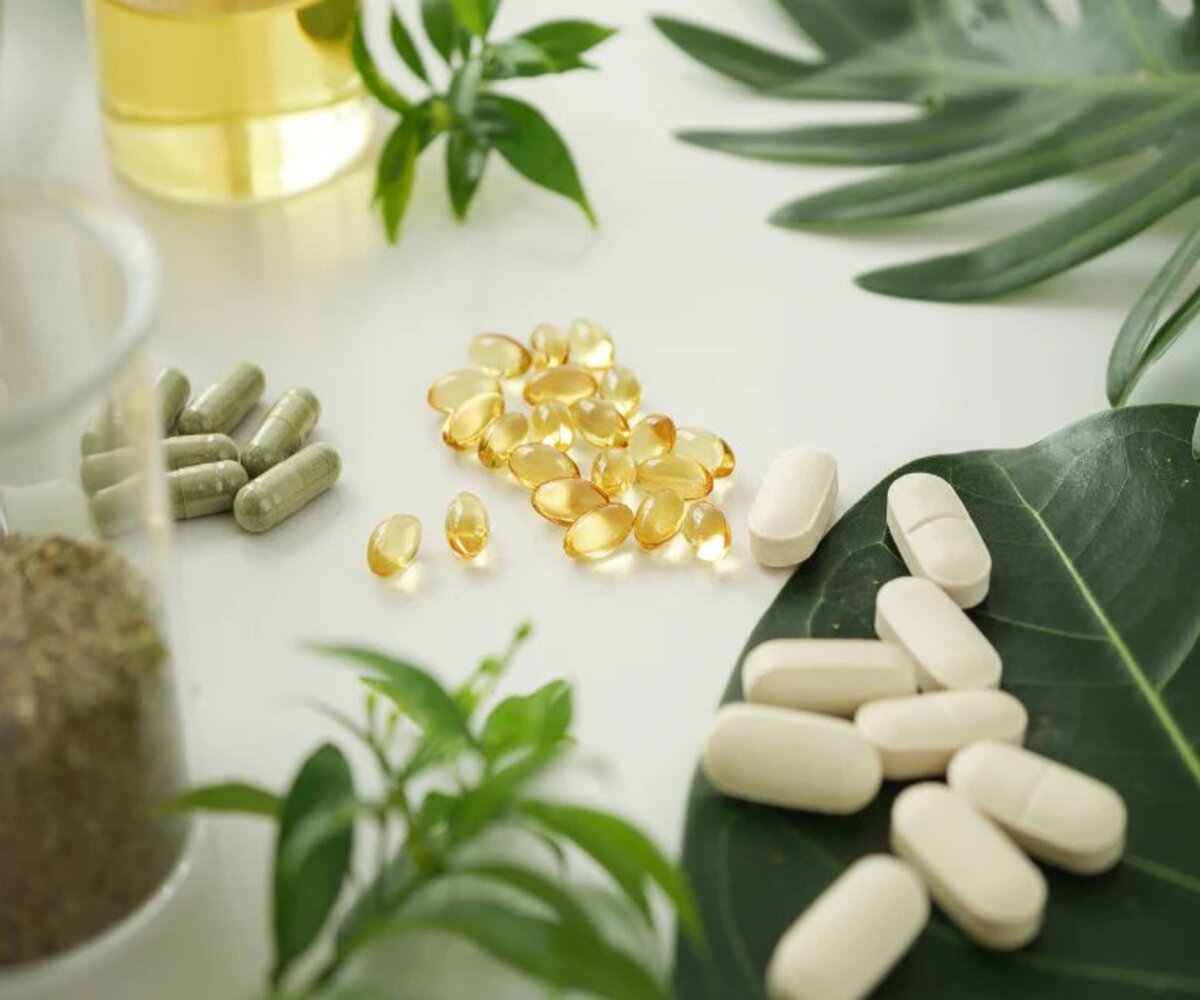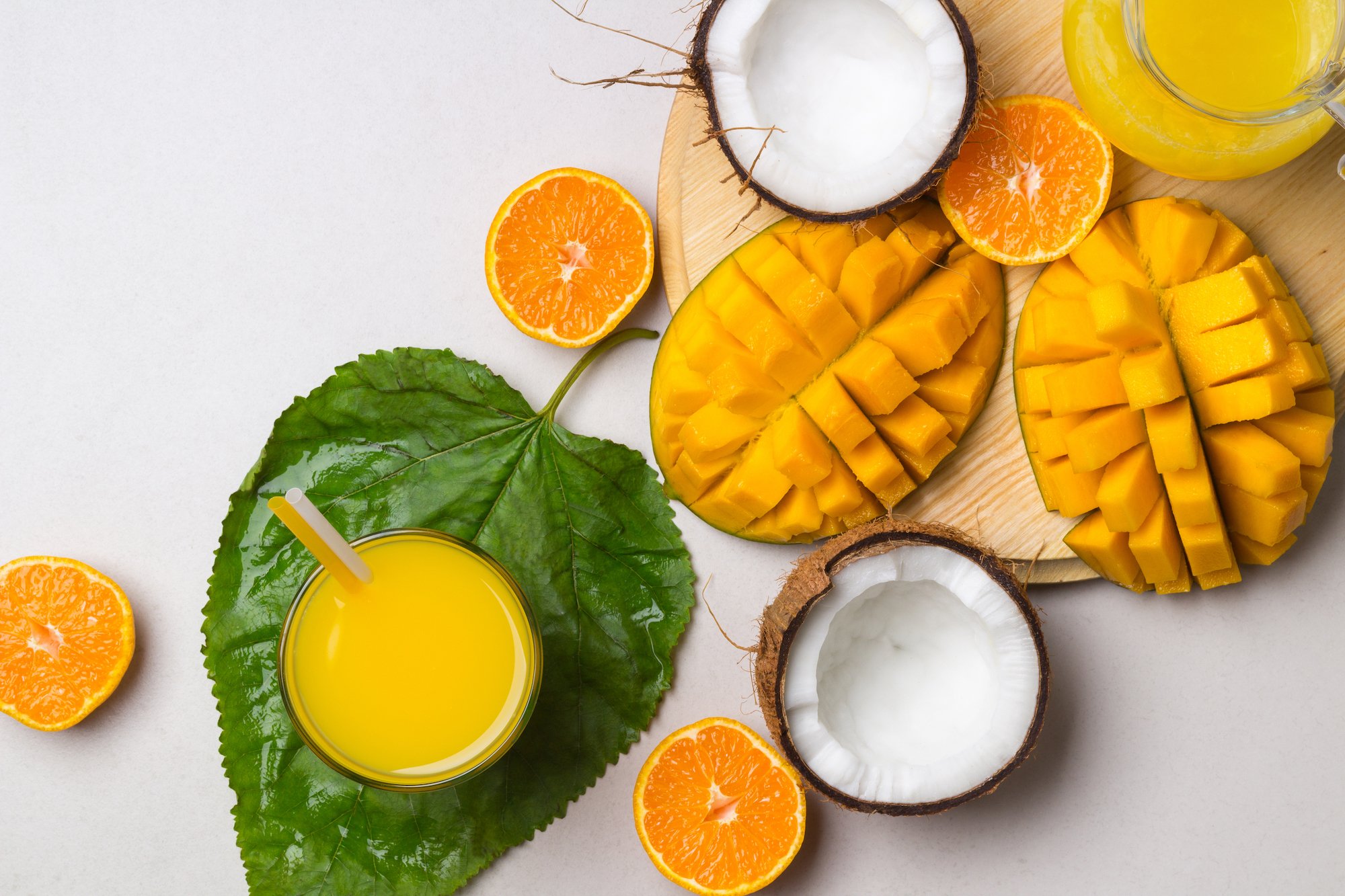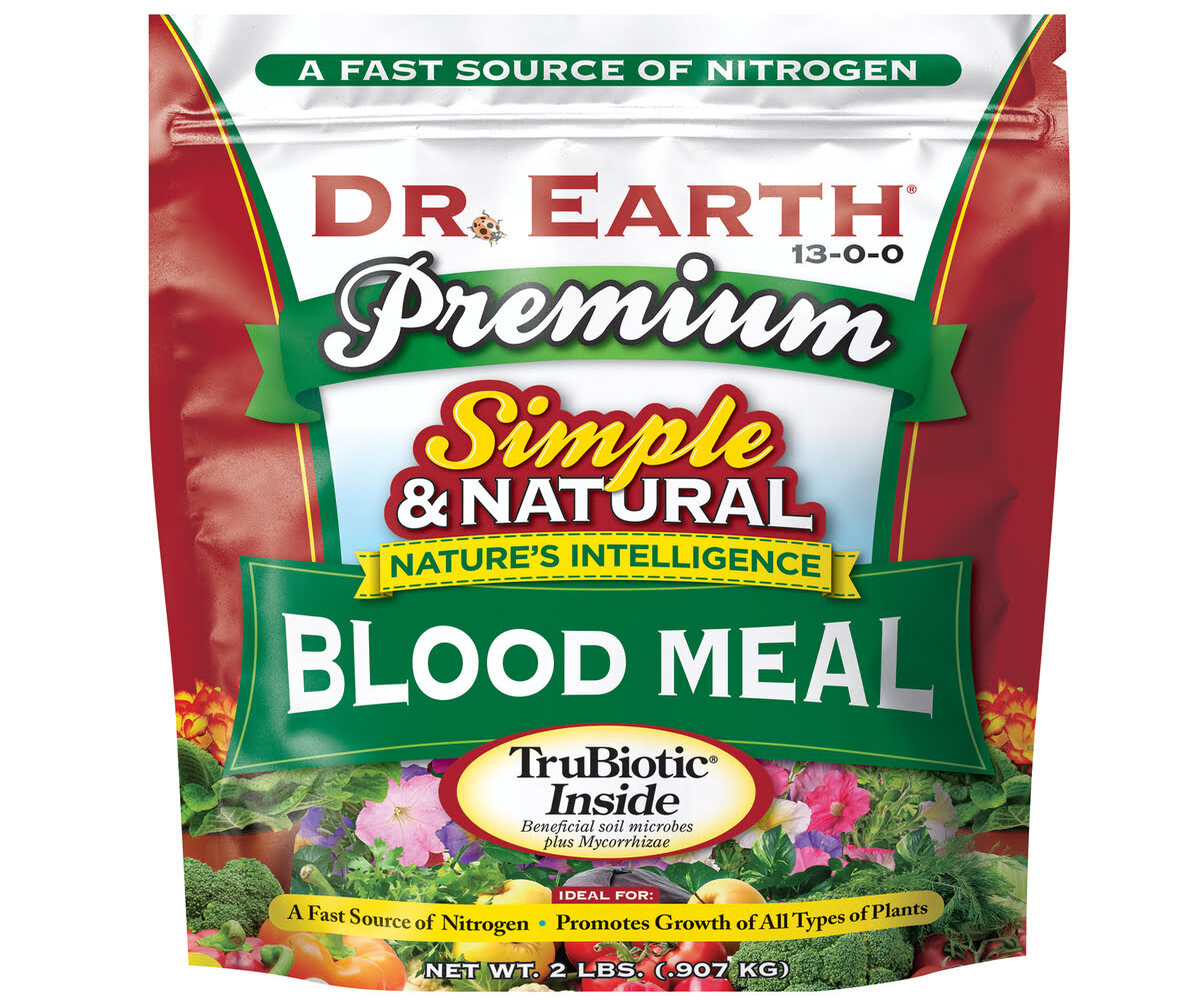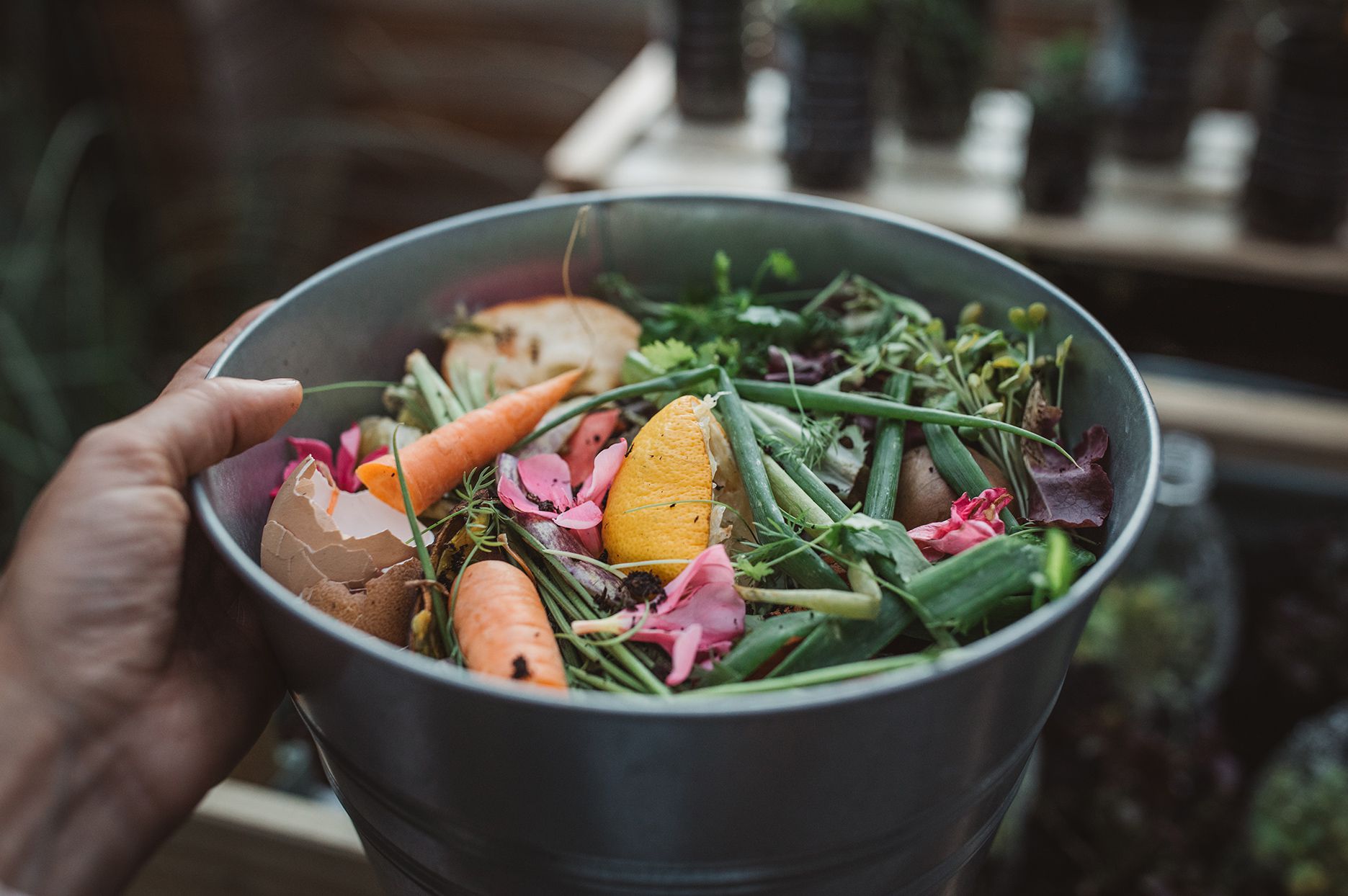Home>Gardening News and Trends>Latest News>What Herbs Should Not Be Taken With Blood Pressure Medicine


Latest News
What Herbs Should Not Be Taken With Blood Pressure Medicine
Published: October 3, 2023
Learn about the latest news on herbs that should not be taken with blood pressure medicine and stay informed on potential interactions and risks.
(Many of the links in this article redirect to a specific reviewed product. Your purchase of these products through affiliate links helps to generate commission for Chicagolandgardening.com, at no extra cost. Learn more)
Table of Contents
Introduction
When it comes to managing high blood pressure, medication prescribed by healthcare professionals plays a vital role in keeping it under control. However, it’s important to be aware that certain herbs and natural remedies can interact with blood pressure medicine, potentially compromising its effectiveness or causing adverse side effects. Therefore, it is crucial to discuss any herbal supplements or alternative remedies you are considering with your doctor or pharmacist.
While herbal remedies are often touted for their potential health benefits, it is essential to exercise caution and understand their potential interactions with blood pressure medication. Some herbs can have a negative impact on the effectiveness of blood pressure medicine or even increase the risk of side effects.
In this article, we will explore ten herbs that should not be taken with blood pressure medicine. It is important to note that this is not an exhaustive list, and there may be other herbs and supplements that can interact with blood pressure medications. Always consult with a healthcare professional before incorporating any new herbs or supplements into your routine, especially if you are taking medication for high blood pressure.
Grapefruit
Grapefruit is a delicious and nutritious fruit packed with vitamin C and other beneficial compounds. However, it can interact with certain blood pressure medications, leading to potentially harmful effects. Grapefruit contains a group of compounds known as furanocoumarins, which can inhibit the metabolism of certain medications in the liver.
Specifically, grapefruit can interfere with the enzyme CYP3A4, responsible for metabolizing many drugs, including some calcium channel blockers and statins, which are commonly used to treat high blood pressure. When grapefruit inhibits this enzyme, it can cause higher levels of these medications to accumulate in the body, potentially increasing the risk of side effects.
It is important to note that the grapefruit effect can last for up to 24 hours after consuming the fruit or its juice, so it is best to avoid grapefruit entirely if you are taking blood pressure medication that can interact with it. Even small amounts or occasional consumption can still pose a risk.
If you are uncertain whether your medication can interact with grapefruit, it is always best to consult with your healthcare provider or pharmacist. They can provide you with specific guidance based on your medication regimen.
St. John’s Wort
St. John’s Wort is a popular herbal supplement used to treat mild to moderate depression and anxiety. It contains active compounds that can affect the levels of certain substances in the brain, such as serotonin. While it may have potential benefits for mental health, it can also interact with blood pressure medication.
St. John’s Wort can induce the activity of enzymes in the liver responsible for drug metabolism, including those involved in the breakdown of blood pressure medication. This increased metabolism can lead to lower levels of these medications in the body, reducing their effectiveness.
If you are taking medications such as beta-blockers or calcium channel blockers for high blood pressure and considering using St. John’s Wort, it is crucial to consult with your healthcare provider. They can determine the potential risks and benefits and provide guidance on the appropriate course of action.
Additionally, St. John’s Wort may also interact with other medications, such as anticoagulants, antidepressants, and certain birth control pills. It is essential to disclose all the medications and supplements you are taking to your healthcare provider to avoid any potential drug interactions.
Garlic
Garlic is a popular kitchen ingredient known for its distinctive flavor and potential health benefits. It has been used for centuries in traditional medicine to support cardiovascular health. While garlic may have beneficial effects on blood pressure, it can also interact with certain blood pressure medications, especially those in the class of ACE inhibitors.
Garlic contains compounds that can enhance the effects of ACE inhibitors, leading to a potential drop in blood pressure beyond the desired range. This can result in dizziness, lightheadedness, and even fainting. Additionally, garlic may also increase the risk of bleeding when combined with blood-thinning medications.
If you are taking ACE inhibitors or other blood pressure medications, it is important to discuss the use of garlic supplements or incorporating garlic into your diet with your healthcare provider. They can provide guidance on the appropriate dosage or suggest alternative strategies to manage your blood pressure.
It’s worth noting that while garlic supplements may pose potential risks for those taking blood pressure medication, consuming moderate amounts of fresh garlic in your diet is generally considered safe and may even provide some cardiovascular benefits. However, always consult with your healthcare provider before making any changes to your medication regimen or significantly increasing your garlic intake.
Ginseng
Ginseng is a popular herbal remedy used to boost energy, promote vitality, and enhance mental performance. However, if you are taking blood pressure medication, it is important to exercise caution when considering the use of ginseng.
Ginseng has been found to have potential blood-thinning effects and may interact with certain blood pressure medications, such as anticoagulants (blood thinners) and antiplatelet drugs. This can increase the risk of bleeding and bruising, as well as potentially interfere with the effectiveness of the medication in managing your blood pressure.
Additionally, ginseng may also interfere with the metabolism of certain medications, including some calcium channel blockers, which are commonly used for high blood pressure. This can affect the levels of these medications in the body and potentially impact their effectiveness.
If you are considering taking ginseng and are already taking blood pressure medication, it is important to consult with your healthcare provider or pharmacist to discuss potential interactions and determine the best course of action. They can provide personalized advice based on your specific medication regimen and health condition.
It is also worth noting that ginseng may have stimulating effects and can raise blood pressure in some individuals. If you have uncontrolled high blood pressure or are at risk for cardiovascular problems, it is especially important to seek professional advice before using ginseng.
Licorice
Licorice root is a flavorful herb commonly used in candies and beverages, and it is also used in herbal medicine for its potential health benefits. However, licorice can have a significant impact on blood pressure and may interact with certain blood pressure medications.
Licorice contains a compound called glycyrrhizin, which can cause the body to retain sodium and excrete potassium. This effect can lead to an increase in blood pressure, making it challenging to control hypertension. For individuals already taking blood pressure medication, this can interfere with the effectiveness of these medications.
In addition to its effect on blood pressure, licorice may also interact with certain medications, such as diuretics and corticosteroids. It can amplify the effects of these medications, potentially leading to electrolyte imbalances and other adverse reactions.
If you are taking blood pressure medication or have hypertension, it is important to discuss the use of licorice supplements or the consumption of licorice products with your healthcare provider. They can determine whether it is safe for you to incorporate licorice into your diet and provide specific guidance based on your individual health needs.
Furthermore, it is worth noting that licorice-flavored candies or beverages may not have the same impact on blood pressure as licorice supplements due to differences in concentration and processing. However, it is still important to exercise moderation and consult with your healthcare provider to ensure that licorice consumption does not interfere with your blood pressure management.
Hawthorn
Hawthorn is an herb derived from the berries, leaves, and flowers of the hawthorn tree. It has a long history of use in traditional medicine for cardiovascular health, including the management of high blood pressure. While hawthorn may have potential benefits, it is important to exercise caution if you are taking blood pressure medication.
Hawthorn has been found to have vasodilating properties, meaning that it can widen blood vessels and potentially lower blood pressure. This effect may interact with the actions of certain blood pressure medications, such as calcium channel blockers or ACE inhibitors. Combining hawthorn with these medications can lead to an excessive drop in blood pressure, causing dizziness, fainting, or other adverse effects.
If you are considering using hawthorn as a complementary therapy for high blood pressure and are already taking blood pressure medication, it is crucial to consult with your healthcare provider. They can provide guidance on the safe use of hawthorn, adjust your medication regimen if necessary, or suggest alternative approaches that align with your health goals.
It’s important to note that hawthorn is available in various forms, including extracts, capsules, and teas. The potency and effectiveness of different preparations may vary, so it is essential to follow the dosing instructions provided and discuss any changes in your medication or supplement regimen with your healthcare provider.
As with any herbal remedy or supplement, it is always important to ensure the quality and safety of the product you are using. Choose reputable brands and consult with a healthcare professional to determine the appropriate dosage and duration of use. Additionally, if you experience any unusual symptoms while taking hawthorn or any other supplement, seek immediate medical attention.
Ephedra
Ephedra, also known as ma-huang, is an herb traditionally used in Chinese medicine for its stimulating properties. It contains ephedrine and pseudoephedrine, compounds that can affect the central nervous system and have stimulant and decongestant effects. However, the use of ephedra has been banned in many countries due to its potential risks and side effects.
Ephedra has been associated with an increased risk of cardiovascular events, including high blood pressure, irregular heart rhythm, and even heart attacks. When combined with blood pressure medication, ephedra can further elevate blood pressure, potentially leading to severe complications.
Due to its safety concerns, it is important to avoid the use of ephedra, especially if you are already taking blood pressure medication. The risks outweigh any potential benefits, and it’s crucial to prioritize your cardiovascular health and consult with your healthcare provider for safer alternatives.
It’s worth noting that ephedrine and pseudoephedrine can also be found in over-the-counter cold and allergy medications. If you have high blood pressure, it is important to read the labels carefully and choose medications that are labeled “non-drowsy” or “safe for individuals with high blood pressure.” However, it is always advisable to consult with your healthcare provider before taking any medications if you have concerns about their safety.
Remember, your healthcare provider is the best resource to guide you on the safe and effective use of medications and supplements, particularly when you have pre-existing medical conditions such as high blood pressure.
Yohimbe
Yohimbe is an herbal supplement derived from the bark of the yohimbe tree. It is commonly used for its potential aphrodisiac effects and as a stimulant. However, if you are taking blood pressure medication, it is important to exercise caution when considering the use of yohimbe.
Yohimbe contains an active compound called yohimbine, which has been found to have vasoconstrictive properties. This means it can narrow blood vessels and increase blood pressure. When combined with blood pressure medication, which aims to lower blood pressure, the use of yohimbe can potentially counteract the effects of these medications and lead to an undesired increase in blood pressure levels.
Moreover, yohimbine can also interact with certain medications and substances that affect blood pressure, such as antidepressants, antihistamines, and caffeine. These interactions can further exacerbate the potential blood pressure effects of yohimbe and may pose additional risks for individuals with hypertension.
If you are considering using yohimbe as a supplement and are already taking blood pressure medication, it is crucial to consult with your healthcare provider. They can provide personalized advice based on your specific medication regimen and health condition. They may advise against the use of yohimbe or suggest alternative strategies to support your overall well-being.
It’s worth noting that yohimbe is a potent herbal supplement and its use should be approached cautiously. Make sure to choose reputable brands that produce high-quality products, and always follow the recommended dosage guidelines. If you experience any adverse effects or unusual symptoms while taking yohimbe, seek immediate medical attention.
Remember, communication with your healthcare provider is key to ensuring the safe and effective management of your blood pressure and overall health.
Dong Quai
Dong Quai, also known as Angelica sinensis, is an herb commonly used in traditional Chinese medicine for various purposes, including women’s health. It is often touted for its potential benefits in regulating menstrual cycles and relieving menopausal symptoms. However, if you are taking blood pressure medication, it is important to exercise caution when considering the use of Dong Quai.
Dong Quai contains compounds that can have blood-thinning effects and potentially interact with certain blood pressure medications. This can increase the risk of bleeding and bruising, especially when combined with medications such as anticoagulants or antiplatelet drugs.
Additionally, Dong Quai has been found to have estrogen-like effects, which can potentially impact hormonal balance and interact with hormonal medications, including some blood pressure medications. It is important to discuss the use of Dong Quai with your healthcare provider to ensure that it does not interfere with your medication regimen or overall health.
If you are considering incorporating Dong Quai into your health routine and are already taking blood pressure medication, it is crucial to consult with your healthcare provider or pharmacist. They can provide personalized advice and guidance based on your specific circumstances, medication regimen, and health goals.
It’s worth noting that herbal supplements like Dong Quai are not regulated in the same way as prescription medications, and their quality and safety can vary between brands. Choose reputable sources and consult with your healthcare provider to ensure you are using high-quality products and following the recommended dosage guidelines.
Remember, open and honest communication with your healthcare provider is essential to ensure the safe and effective management of your blood pressure and overall well-being.
Chamomile
Chamomile is a herb that is widely known for its calming and soothing properties. It is commonly used as a tea or in essential oil form to promote relaxation and alleviate stress. While chamomile is generally considered safe and has many potential health benefits, it is important to be cautious if you are taking blood pressure medication.
Chamomile has been found to have mild hypotensive effects, meaning that it can lower blood pressure. While this may be beneficial for individuals with high blood pressure, it can interact with blood pressure medication, potentially leading to a more significant drop in blood pressure levels.
If you are taking blood pressure medication and are considering using chamomile as a supplement or incorporating it into your routine, it is important to consult with your healthcare provider. They can provide guidance on the appropriate dosage, potential risks, and potential interactions with your specific medication regimen.
Furthermore, it is worth noting that chamomile can also interact with other medications and substances, including sedatives, anticoagulants, and drugs that affect the liver. If you are taking any of these medications, it is crucial to inform your healthcare provider to ensure your safety and reduce the risk of adverse effects.
While chamomile tea is generally considered safe when consumed in moderate amounts, it is advisable to discuss its use with your healthcare provider if you have any concerns or specific health conditions, including high blood pressure.
Always remember to choose high-quality chamomile products from trusted sources and follow the recommended dosages. If you experience any unusual symptoms or side effects while using chamomile, seek medical attention immediately.
By maintaining open communication with your healthcare provider, you can ensure that the use of chamomile is safe and appropriate for your individual health needs.
Conclusion
When it comes to managing high blood pressure, it is important to be aware of potential interactions between blood pressure medication and certain herbs or natural remedies. While herbal supplements can have potential health benefits, some herbs can interfere with the effectiveness of blood pressure medication or increase the risk of side effects.
Grapefruit, St. John’s Wort, garlic, ginseng, licorice, hawthorn, ephedra, yohimbe, dong quai, and chamomile are ten herbs and natural remedies that should be approached with caution if you are taking blood pressure medication. These herbs can interact with the medication, potentially affecting its effectiveness or leading to adverse effects.
It is crucial to consult with your healthcare provider or pharmacist before incorporating any herbal supplements or alternative remedies into your routine, especially if you are taking medication for high blood pressure. They can provide guidance on potential interactions, adjust your medication regimen if necessary, or suggest alternative approaches that align with your health goals.
Always choose reputable brands, follow recommended dosages, and disclose all medications and supplements you are taking to your healthcare provider. This will ensure your safety and reduce the risk of potential interactions.
Remember, managing high blood pressure requires a comprehensive approach that includes lifestyle modifications, medication adherence, and open communication with your healthcare team. By working together, you can effectively manage your blood pressure and promote overall well-being.








